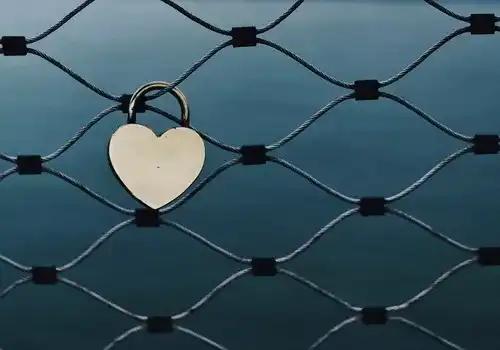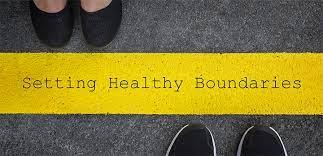Learn more about personaldevelopment with this collection
Understanding the importance of decision-making
Identifying biases that affect decision-making
Analyzing the potential outcomes of a decision
NO boundaries = little self-esteem
The first step to change is admitting this.
Your boundaries are your values. Boundaries are representative of how much or little you respect yourself.
2.78K
14.2K reads
MORE IDEAS ON THIS
Decide the consequences
The best way to figure out your own boundaries and consequences when people cross them is by sitting quietly down with yourself and making this all about you.
Keep in mind: boundaries are about honoring your needs, not about judging other people's choices.
2.46K
7.1K reads
Let your behavior speak for you
You present your boundaries clearly to people and then let your behavior do the talking.
People WILL test, push and disrespect your limits. You'll know you're getting healthier when this doesn't get an emotional reaction out of you.
2.61K
7.16K reads
Choose your core values
You must make your boundaries about you.
Once you get clear about what matters most to you, then you can take the bigger step of communicating that to the others.
2.32K
7.32K reads
Communicating boundaries
The biggest part of setting boundaries is HOW clearly you communicate them.
You can have the most healthy set of boundaries on the planet but if you do not communicate them clearly, you are going to create some really confusing relationships, both for you and everyone else involved....
2.36K
7.18K reads
You can't change others
You are not responsible for what they say, their reactions or for the daily choices they make.
Since you can't change other people, change how you deal with them. They may be motivated to change if their old ways no longer work.
2.66K
7.36K reads
CURATED FROM
CURATED BY
Related collections
More like this
Self-esteem
Self-esteem is the subjective evaluation of your own worth. There are two sources to fulfill this need:
- The need for respect from others that is obtained from recognition and admiration.
- The need for self-respect in the form of self-love, skill or aptitude....
Boundaries in Relationships and Stress
Boundaries can be described as how emotionally close you let people get to you. They are also where you draw the line within a relationship. They say how much you are willing to give or take before requiring that things change or deciding to call it quits.
Setting healthy ...
Create boundaries
Remember the wonderful phrase: "First time, shame on you; the second time, shame on me." It perfectly describes responsibility and the importance of boundaries, it allows you to use each encounter to learn something about yourself and the other person so you can change the way th...
Read & Learn
20x Faster
without
deepstash
with
deepstash
with
deepstash
Access to 200,000+ ideas
—
Access to the mobile app
—
Unlimited idea saving & library
—
—
Unlimited history
—
—
Unlimited listening to ideas
—
—
Downloading & offline access
—
—
Personalized recommendations
—
—
Supercharge your mind with one idea per day
Enter your email and spend 1 minute every day to learn something new.
I agree to receive email updates

